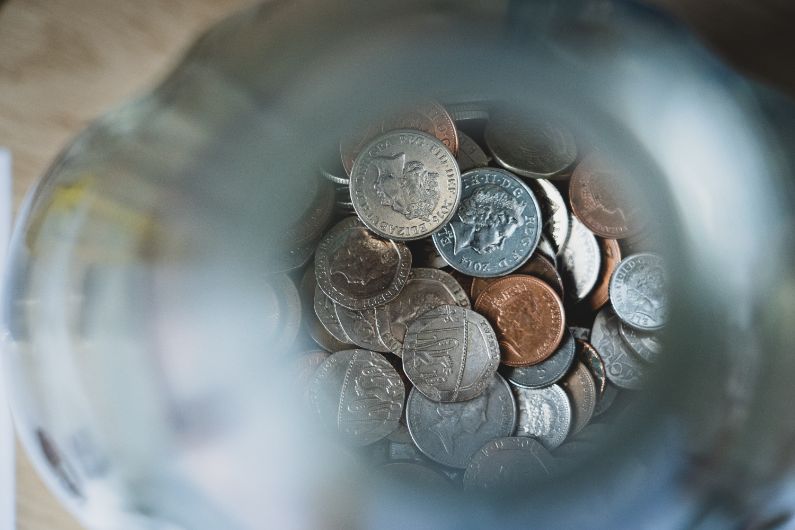
How Much Money Should I Have Saved by 30? [2022]
When you’re young, it can be challenging to consider the future. But one question everyone should ask is, “how much money should I have saved by 30?”See what your current savings can grow to in the following paragraphs.
You probably don’t need a speech about the cost of waiting to start investing if you’re in your 30s and have no retirement savings. Many people in their 20s fail to save money because their entry-level salaries are so low, not because their spending is out of control. Many people are also already having trouble paying back their student loans.
In this article, we’ll go over how much cash you should ideally have set aside by the time you’re 30. Along with that, we’ll offer some advice on how to accomplish it.
How Much Money Has the Average 30-year-old Saved?
Congratulations if you really do have $47,000 saved at the age of 30. You are miles ahead of your peers. In the 2019 Survey of Consumer Finances from the Federal Reserve, individuals under 35 have a median retirement account balance of $13,000. The median net worth (assets minus liabilities) for this same age group is $14,000, and the median bank account balance is $3,240.
According to the survey, the median student loan debt balance is $22,000, and just over 40% of respondents under the age of 35 have student loan debt. With a median balance of $1,900, nearly half of Americans have credit card debt. Saving money is always important.
Read More:
6 Ways to Save More Money at Age 30
Don’t let being thirty put you off from saving money because you really still have at least three more decades in the workforce. Follow these tips to get on track to achieve your financial goals:
Prioritize Your Emergency Savings Fund

No matter your age, having a savings account for emergencies that can cover 3-6 months of expenses is essential for financial security. However, because you’re more likely to have children and own a home in your 30s than in your 20s, it tends to become more significant then.
It might seem counterintuitive to have money in a savings account earning less than 1% interest. However, having that cash on hand prevents you from selling your stock investments in a time of need. Early withdrawals from retirement accounts frequently result in taxes and penalties, and you might be forced to sell your holdings at a loss.
Saving for your emergency fund should come before paying off your student loans, despite the fact that you might be eager to do so. Until you have at least three months’ worth of savings, only make the minimum payments on your student loans. Then, concentrate more on reducing your debt.
Contribute to Both a 401(k) and a Roth IRA
Make sure to make at least the minimum annual contribution required to receive the full company 401(k) match if your employer offers a retirement plan with matching contributions. By making even more contributions, you can play catch-up. If you have extra money available, you can also fund an individual retirement account (IRA).
Because you give up a tax break now, when your tax bracket might be lower, in exchange for tax-free income in retirement, a Roth IRA is frequently a wise choice. Additionally, you are not subject to a penalty or tax when withdrawing contributions (but not earnings on those contributions). In 2021 and 2022, the maximum amount that individuals under 50 can contribute to an IRA is $6,000.
You can use a combination of IRAs and retirement plans for the self-employed if you work as a freelancer, independent contractor, or small business owner to save for retirement.

Treat Paying Off High-interest Debt as An Investment
The choice between investing and paying off debt ultimately comes down to whether you are paying more in interest on the debt than you could reasonably expect to make from investing.
You should invest in your retirement account to take advantage of your employer’s 401(k) match before paying off any debt with interest rates higher than this 8% to 10% range, keeping in mind that an S&P 500 index fund yields an annual return of approximately 8% to 10% on average.
Credit card debt ought to be paid off first because it typically carries interest rates that are higher than those on student loans. Private student loans typically have higher interest rates than federal student loans, and until January, federal student loan payments are automatically suspended due to COVID-19. 31, 2022.
Consider using the funds typically set aside for those payments to pay down other debt or to put toward your savings account since federal loans do not accrue interest.
In general, it is not in your best financial interest to pay off low-interest debt, such as a mortgage, by the time you turn 30. To take advantage of compound interest, you should invest that money instead.
Err on the Side of Taking Risk
Your retirement is decades away at age 30. Because your portfolio’s value would have plenty of time to recover, you shouldn’t worry excessively about a stock market crash.
It’s critical to assume sufficient risk to produce significant returns, especially if you’re starting later. Don’t invest in a portfolio that makes your heart race, but don’t either be overly conservative.
People in their 30s should consider a portfolio that is primarily comprised of stocks and contains only a small portion of bonds. The Rule of 110, which states that your stock allocation should be 110 less than your age, is a useful rule of thumb. Therefore, if you are 30 years old, you ought to own 80% stocks and 20% bonds.

Save for Your Retirement before Your Kids’ Education
Don’t use your children as your retirement plan if you have children. Prior to contributing to their college funds, concentrate on increasing your emergency fund and retirement savings.
Your kids will be able to choose an affordable school, accept financial aid in the form of scholarships and student loans, and work part-time jobs as options for paying for their education. However, there aren’t many ways you can pay for your own retirement. You can begin saving for your children’s college expenses once your retirement investing strategy is working.
Save More as You Earn More
Many people spend their 20s struggling from paycheck to paycheck. But if you’ve already had a few substantial pay raises, you might finally have some cash to invest. Every time you receive a pay raise, it’s critical to increase your savings rate or the portion of your paycheck that you set aside for savings.
Your costs should rise more slowly than your income. You can succeed in saving enough money for your later years if you make a commitment to limiting lifestyle inflation and saving an increasing percentage of your raises.
How Much Money Should You Have Saved by 30 for Retirement?
Fast answer:
- By age 30, three times by age 40, and so on, you should have saved up one year’s worth of income. See the chart below.
- The sooner you start saving for retirement, the longer you’ll have to take advantage of the power of compound interest.
- Aim to save 5% to 15% of your income for retirement; alternatively, start with a percentage that works for your budget and gradually increase it by 1% a year until it reaches 15%.
We are aware that saving a couple of million dollars by the time you are in your 60s or 70s can seem daunting. This is where dividing up your retirement savings using age-based benchmarks may be useful. It’s simpler to make financial plans and implement practical savings strategies when you think of your savings in 10-year increments.

You should aim to save your entire salary by the time you are 30 and increase your savings by your annual salary every five years, according to a common age-based retirement savings recommendation. Starting at age 30, here is how that would be broken down by decade.
FAQs
How Much Do You Need to Save in Your 40s?
In your 40s, you might be thinking about a career change, figuring out college education costs for your kids, or having your eye on early retirement. Savings can assist you in achieving any objectives. Aiming to save at least $1,000 per month at this stage of your life can help you prepare for this chapter and the ones that will come after.
How Much Do You Need to Save in Your 50s?
Saving is more crucial than ever because retirement is just around the corner for many people in their 50s. Your attention may be turning toward providing for any potential medical needs or estate planning.
In order to make sure that your savings keep growing and are used to fund your goals, you should aim to save about $1,000 per month (or achieve that 20% goal) based on average earnings.


